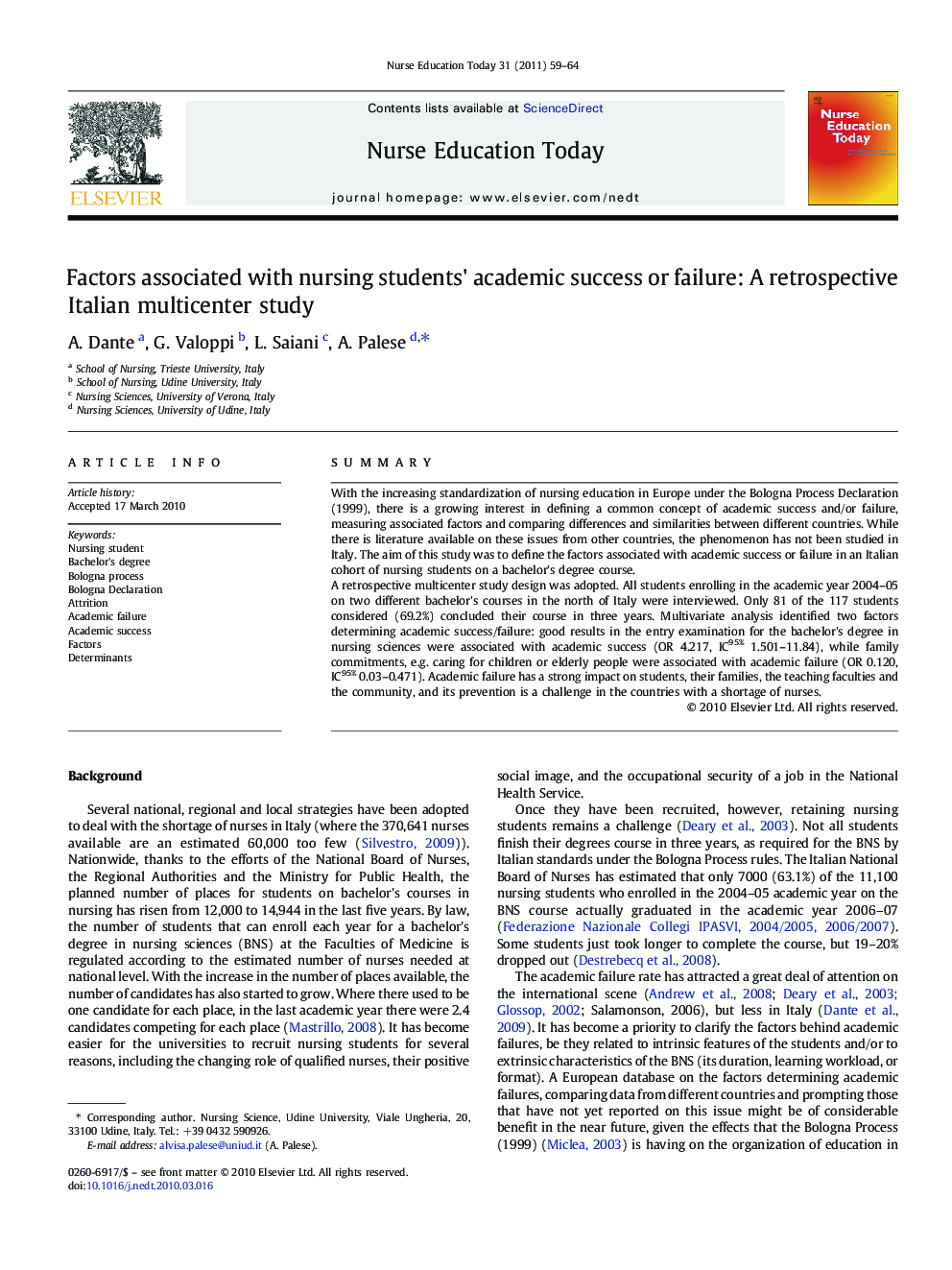| Article ID | Journal | Published Year | Pages | File Type |
|---|---|---|---|---|
| 369292 | Nurse Education Today | 2011 | 6 Pages |
SUMMARYWith the increasing standardization of nursing education in Europe under the Bologna Process Declaration (1999), there is a growing interest in defining a common concept of academic success and/or failure, measuring associated factors and comparing differences and similarities between different countries. While there is literature available on these issues from other countries, the phenomenon has not been studied in Italy. The aim of this study was to define the factors associated with academic success or failure in an Italian cohort of nursing students on a bachelor's degree course.A retrospective multicenter study design was adopted. All students enrolling in the academic year 2004–05 on two different bachelor's courses in the north of Italy were interviewed. Only 81 of the 117 students considered (69.2%) concluded their course in three years. Multivariate analysis identified two factors determining academic success/failure: good results in the entry examination for the bachelor's degree in nursing sciences were associated with academic success (OR 4.217, IC95% 1.501–11.84), while family commitments, e.g. caring for children or elderly people were associated with academic failure (OR 0.120, IC95% 0.03–0.471). Academic failure has a strong impact on students, their families, the teaching faculties and the community, and its prevention is a challenge in the countries with a shortage of nurses.
